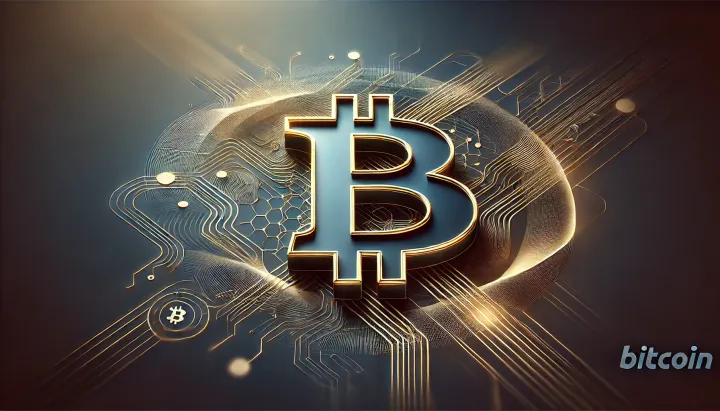Bitcoin Redefining Value in a Decentralized Economy
The April 02, 2025 episode of Mr. M Podcast with Knut Svanholm examines Bitcoin’s unique architecture, its dual role as a store of value and a medium of exchange over time, and challenges such as mining centralization and regulatory pressures.

- My 'briefing notes' summarize the content of podcast episodes; they do not reflect my own views.
- They contain (1) a summary of podcast content, (2) potential information gaps, and (3) some speculative views on wider Bitcoin implications.
- Pay attention to broadcast dates (I often summarize older episodes)
- Some episodes I summarize may be sponsored: don't trust, verify, if the information you are looking for is to be used for decision-making.
Summary
The April 02, 2025 episode of Mr. M Podcast with Knut Svanholm examines Bitcoin’s unique architecture, its dual role as a store of value and a medium of exchange over time, and challenges such as mining centralization and regulatory pressures. Svanholm contrasts Bitcoin’s finite, deflationary design with traditional fiat systems while stressing the importance of decentralized security and clear valuation. The discussion calls for long-term strategic planning to safeguard Bitcoin’s transformative potential.
Take-Home Messages
- Decentralized Security: Emphasize the need to prevent mining centralization and protect node integrity to preserve Bitcoin’s trustless system.
- Independent Valuation: Develop methods to communicate Bitcoin’s intrinsic, deflationary value without reliance on fiat benchmarks.
- Regulatory Safeguards: Advocate for legal frameworks that protect voluntary transactions and prevent undue governmental interference.
- Long-Term Strategy: Encourage a focus on delayed gratification and strategic planning to harness Bitcoin’s full potential.
- Network Vigilance: Maintain continuous oversight to counteract risks from centralized influences and ensure robust decentralization.
Overview
Bitcoin’s fundamental principle of permissionless action and a universally maintained ledger is introduced as the core that prevents counterfeiting and supports trustless transactions. The discussion sets the stage by underscoring the importance of a decentralized record keeping system in ensuring security.
Knut Svanholm details his personal evolution from a shipping professional to a dedicated Bitcoiner and educator, emphasizing how exposure to Bitcoin’s finite and deflationary nature reshaped his understanding of money. He contrasts Bitcoin’s design with the distortions inherent in fiat currency systems.
Technical aspects are addressed, including the necessity of running a node for verification, the risks posed by mining centralization, and vulnerabilities like potential bribery of node operators. Svanholm outlines how these technical challenges directly impact the network’s integrity.
The narrative concludes by stressing long-term economic implications and the importance of clear, fiat-independent valuation models. It highlights that safeguarding decentralization and adopting proactive legal and technical measures are essential for Bitcoin’s sustained evolution.
Stakeholder Perspectives
- Bitcoin Users: Demand enhanced security, clear value communication, and assurances against centralization risks.
- Node Operators: Prioritize maintaining network integrity and resisting external influences or bribery.
- Regulators and Policymakers: Seek balanced legal frameworks that protect innovation while ensuring consumer protection.
- Economic Analysts: Advocate for revised valuation models that reflect Bitcoin’s deflationary and finite nature.
- Industry Innovators: Explore opportunities to build complementary technologies that support scalability without compromising decentralization.
Implications and Future Outlook
The episode underscores that preserving decentralization—especially in mining and node operations—is vital for Bitcoin’s long-term security and reliability. Technical innovations and community vigilance are imperative to counteract risks from centralized influences. Ensuring robust decentralization will support Bitcoin’s role as a truly trustless network.
Regulatory measures and misaligned valuation frameworks (i.e., evaluating Bitcoin's worth using traditional fiat-based metrics) pose challenges that could obscure Bitcoin’s inherent economic benefits. The discussion emphasizes the need for legal safeguards that respect voluntary transactions while preventing coercive state interventions. Addressing these concerns is essential to maintain confidence in Bitcoin’s transformative potential.
Strategic long-term planning is crucial for realizing Bitcoin’s dual function as a store of value and medium of exchange. Continuous education, transparent communication, and proactive technological development will be key. A balanced approach will enable stakeholders to harness opportunities and mitigate emerging threats.
Information Gaps
- How can the Bitcoin network mitigate risks associated with mining pool centralization? This question is critical as centralized mining pools pose a significant risk to the network’s security and trustlessness. Addressing it will help preserve Bitcoin’s decentralized architecture, ensuring that no single entity can unduly influence consensus.
- What mechanisms can be implemented to prevent bribery of node operators? This inquiry is vital because bribery undermines the integrity of Bitcoin’s verification process. Ensuring robust defenses against such inducements is essential for maintaining the network’s security and decentralization.
- What legal frameworks could safeguard Bitcoin’s use as a voluntary medium of exchange? This question is important given the potential impact of regulatory measures on Bitcoin’s core functions. Clear legal protections are necessary to support its decentralized and voluntary nature in a rapidly evolving policy landscape.
- How can Bitcoin’s intrinsic value be better communicated independent of fiat benchmarks? This question addresses the distortion that occurs when Bitcoin is measured solely against fiat currencies. Improved communication of its inherent economic properties may enhance user understanding and promote broader adoption.
- What impact do political endorsements have on Bitcoin’s user-driven model and how can it be mitigated? This question is essential as political and institutional influences can disrupt the decentralized ethos of Bitcoin. Understanding and mitigating these effects is key to preserving the network’s autonomy and long-term resilience.
Broader Implications for Bitcoin
Global Monetary Realignment
Bitcoin’s influence may catalyze a shift away from traditional fiat reserve systems towards a model centered on scarcity and deflationary principles. Nations could be forced to reconsider monetary policies as Bitcoin’s finite supply offers a credible alternative to inflation-prone currencies. This evolution may drive a rebalancing of international economic power and reshape global trade dynamics.
Decentralized Governance Evolution
Bitcoin’s trustless, permissionless model signals a broader potential for decentralized governance structures that challenge established power hierarchies. As more sectors explore systems that operate without centralized control, Bitcoin’s approach may serve as a blueprint for alternative political and organizational models. This could lead to increased transparency, accountability, and resilience in both digital and traditional institutions.
Technological and Economic Synergy
The integration of robust cryptographic protocols with economic incentives in Bitcoin sets a precedent for the convergence of technology and finance. This synergy encourages innovation in fintech, inspiring new models that leverage decentralized networks for broader financial applications. Such advancements may further disrupt legacy banking systems and foster a new era of economic efficiency and inclusion.
Reimagining Personal Sovereignty
Bitcoin’s emphasis on voluntary, trustless transactions empowers individuals to reclaim control over their financial assets without reliance on centralized authorities. By promoting self-custody and low time preference, Bitcoin challenges traditional notions of ownership and wealth management. This paradigm shift could redefine personal financial autonomy and catalyze a broader movement toward individual empowerment in digital economies.
Incentivizing Long-Term Economic Planning
Bitcoin’s deflationary design inherently rewards patience and long-term strategic thinking over short-term speculative gains. This characteristic encourages stakeholders to invest in sustainable growth and prioritize future value over immediate returns. As a result, Bitcoin could influence broader investment practices and economic policies, promoting a more resilient and forward-looking financial ecosystem.



Comments ()